15 FAA Medical Certificate Disqualifying Conditions for Pilots
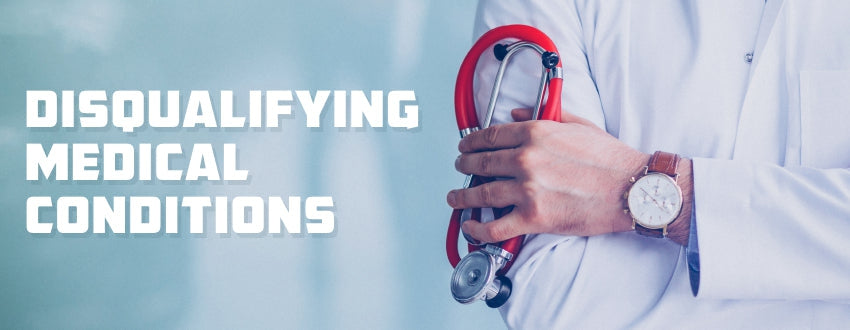
One of the first steps towards fulfilling the dream of becoming a pilot is to obtain a medical certificate. This is especially important for student pilots since this is part of the student pilot certification process. Once obtained, all medical certificates expire after a set period of time and must be renewed. Alternatively, pilots who meet the BasicMed criteria have the option of transitioning to the BasicMed certification program after obtaining their initial standard FAA medical certificate.
The purpose of a medical certificate is to establish that a pilot’s physical and mental health is within the FAA’s established parameters and that they are unlikely to interfere with the pilot’s ability to safely pilot an aircraft.
Naturally, a pilot’s health status can change over time and after a new diagnosis or health event, pilots may find that they no longer meet medical standards. If a pilot’s health changes in between certifications, they are expected to notify the FAA to confirm that they still meet the criteria for holding a medical certificate.
The FAA has published a list of fifteen FAA medical exam disqualifying conditions. Pilots who are diagnosed with or experience any of these conditions may be unable to obtain or continue to hold medical certification. It is important to note that this disqualification is not set in stone.
The FAA says that “in many cases when the condition is adequately controlled, the FAA will issue medical certification contingent on periodic reports.” If you have one of these conditions, the medical division of the FAA will review your case to determine whether you qualify for a special issuance medical certification.

The FAA medical certificate disqualifying conditions include:
1. Angina pectoris
Pilots diagnosed with angina pectoris or chest pain caused by low blood flow to the heart will undergo a cardiovascular evaluation and must submit current blood chemistries, the prognosis for incapacitation, and an assessment and statement from a cardiologist for decision consideration.
2. Bipolar disease
A diagnosis of bipolar disease is initially disqualifying; however, the FAA may choose to allow a special issuance of medical on a case-by-case basis. Medical records, a current status report, and medication information must be presented. The decision will be based on whether or not it is determined that the pilot is likely to experience disruptions in judgment and functioning that pose a risk to aviation safety.
3. Cardiac valve replacement
As part of their cardiac evaluation, pilots who are seeking an initial special issuance following a valve replacement will need to submit copies of their hospital and medical records for review. A current report from your treating cardiologist will also be required. A 24-hour Holter monitor, echocardiogram, and maximal GXT (stress test) must be performed, and first- or second-class certificate applicants will be reviewed by the Federal Air Surgeon’s (FAS) Cardiology Panel. Read the FAA’s protocol for cardiac valve replacement to learn more about what to expect.

4. Coronary heart disease that has been treated or, if untreated, that has been symptomatic or clinically significant
The FAA recognizes four broad categories of coronary heart disease (CHD), two of which include myocardial infarction (MI), two of which may or may not. Pilots who have non-MI coronary heart disease but have had open revascularization of any coronary arteries and left main coronary artery stenting or who have had percutaneous intervention are subject to the CHD special issuance considerations.
5. Diabetes mellitus requiring hypoglycemic medications
If a pilot has diabetes mellitus type II which is medication controlled and requires the use of hypoglycemic medications, this is considered a disqualifying condition. To determine initial qualification to seek a special issuance, check the list of acceptable combinations of diabetes medications. If your medications are on the list, you may submit a Diabetes or Hyperglycemia on Oral Medications Status Report that outlines your medication dosage, side effects, any clinically significant hypoglycemic episodes, and demonstrates satisfactory control of the diabetes. Results from a current A1C hemoglobin test must also be included. The decision will be based on the diabetes decision considerations established by the FAA.
6. Disturbance of consciousness without satisfactory explanation of cause
A disturbance of consciousness is also referred to as syncope. A syncopal episode without satisfactory explanation of cause can be linked to various factors including cardiovascular, neurological, and psychiatric. Pilots who have experienced this condition must complete the course of action in the coronary heart disease protocol including an echocardiogram, 24-hour Holter cardiac monitor, and bilateral carotid ultrasound. A current neurologic report is also required.
7. Epilepsy
Epilepsy is a neurologic condition that may be eligible for a special issuance consideration depending on the type and frequency of the seizures. If a pilot has been diagnosed with Rolandic seizures but has been seizure free for 4 years and has a normal EEG or if a pilot was diagnosed with a seizure disorder in childhood but has been seizure-free for a number of years, they may qualify. The FAA will need to review medical records, a current health status report, and medication information to make a decision.
8. Heart replacement
Pilots who have had a cardiac transplant are ineligible for first- or second-class certificates. A special issuance may be made for third-class applicants pending the approval of the FAA Cardiology Panel. Current cardiologist reports, blood chemistries, coronary angiogram, graded exercise stress test, 24-hour Holter monitor evaluation, and additional documentation will need to be provided to the panel. A decision will be made using the established decision considerations for cardiac transplant. If a special issuance is granted, annual follow-up evaluations will be required.
9. Myocardial infarction
A myocardial infarction (MI) either with or without open or percutaneous intervention as well as an MI from non-coronary artery disease causes both are potentially disqualifying conditions that may receive special issuance certification if the pilot meets certain standards. The FAA Coronary Heart Disease (CHD) decision considerations apply to myocardial infarctions and they list the required recovery time as well as test results which will be needed for consideration.

10. Permanent cardiac pacemaker
Pilots may apply for a special issuance medical certificate two-months after the implantation of a permanent cardiac pacemaker. To be considered, pilots will need to mail a packet of information to the Aerospace Medical Certification Division. Requirements include hospital and medical records, pacemaker function evaluation, pacemaker surveillance record samples, physician statement, blood chemistries, Holter monitor evaluation, echocardiogram, and stress test.
11. A personality disorder that is severe enough to have repeatedly manifested itself by overt acts
Personality disorders are considered for special issuance medical certification if they are of a limited duration and severity. The FAA will consider whether the personality disorder has been severe enough to disrupt work or schooling. The need for medication and the presence or absence of suicidal ideation will also play a factor. If a long history of behavioral problems exists, a pilot is less likely to be issued a special certificate.
12. Psychosis
According to the FAA, psychosis includes a “loss of reality testing in the form of delusions, hallucinations, or disorganized thoughts” which may be chronic, intermittent, or limited to a single episode. Psychosis may or may not coexist with other psychiatric conditions like bipolar disorder. To be considered for a special issuance certificate, a pilot with a psychosis diagnosis must submit their medical records and a clinical status report to the FAA.

13. Substance abuse
The FAA’s substance abuse policy covers alcohol as well as prescription and illicit drugs. Abuse is defined the Substances of Dependence/Abuse FAQ document. A pilot is required to report alcohol related events including arrests, convictions, or administrative actions to the FAA Medical and Security Divisions. Alcohol use can interfere with a pilot’s ability to obtain a medical certification if the pilot has been involved in two or more alcohol use events, DUIs, or DWIs in their lifetime. To request a special issuance related to alcohol, the pilot must submit an airman’s personal statement along with the medical examiner’s alcohol event status report.
Any drug use event in the airman’s lifetime that has not been cleared by the FAA and given an eligibility letter results in denial of a standard medical certification. Drug use special issuance requests must include a statement indicating the drug used, frequency, amount, dates, whether treatment programs were attended, and any adverse consequences from use.
Determination for both alcohol and drug abuse cases will be based on the criteria in the FAA Drug and Alcohol Initial Certification Aid.
14. Substance dependence
The FAA has established regulatory requirement criteria to define substance dependence. According to these criteria dependence is indicated by increased tolerance, manifestation of withdrawal symptoms, impaired control of use, or continued use despite damage to physical health or impairment of social, personal, or occupational functioning. Special issuance certification can be applied for and will be based on similar criteria to that of substance abuse.
15. Transient loss of control of nervous system functions without satisfactory explanation of cause
Transient global amnesia is a type of transient loss of control of the nervous system function that the FAA may consider issuing special certification for. This decision must be made by the FAA medical team and will be based on medical records, a current status report, and medication information.
Takeaways
It can be important for a student pilot to consider the option of taking the first-class medical exam if their aim is to work for the airlines. Knowing if they can pass and receive the first-class medical certificate can save time prior to getting too far into the training process.
Students should consult with their flight instructors and be clear about what their end goals are.
Aviation Medical & Safety Related Articles
Our guides are designed to help student pilots become professional pilots and for private pilots to brush up on their knowledge and skills.
-
Preflight Checklists are Crucial to Safety (Download Checklist)
-
7 Types of Turbulence Every Pilot Should Know (What Causes It)
Did you find this article helpful?
Do you think we missed anything important? Let us know in the comments below!





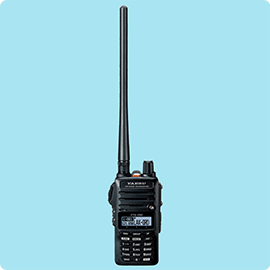
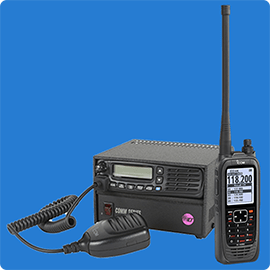
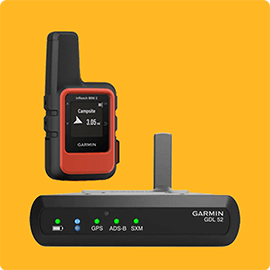
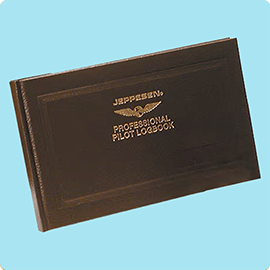
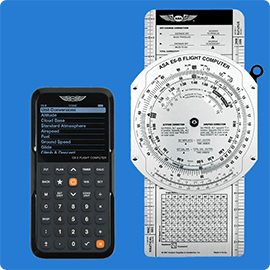
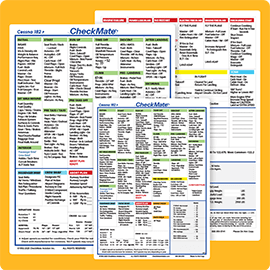
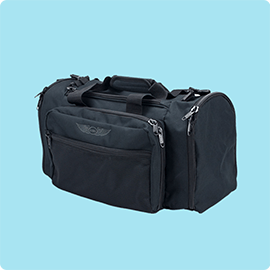

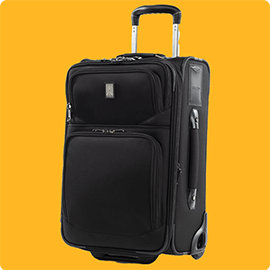
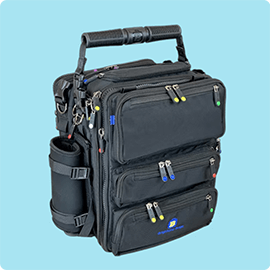


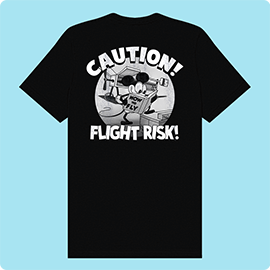






10 comments
The FAA will lie to you, and about you. If you want to keep flying , use Basic Med. There are no words in the dictionary to describe how badly the FAA hates the program because it takes away their ability to control and abuse pilots. NEVER trust the FAA medical department. They exist for one reason only- to ground every pilot they can.
LOSS OF LEFT ELBOW, ARM STILL INTACT, JUST NO ELBOW JOINT. WAS A PPL IN 1965-1975 HAVEN’T PILOTED IN ABOUT 30YRS. IS MY PPL CERTIFICATE STILL VALID IF I CAN PASS A PHYSICAL.
Did the FAA change health requirements for pilots ? The FAA widen the KEG requirements? The FAA is allowing more heart abnormalities in pilots ?
Transient loss of control of nervous system function without satisfactory explanation of cause……….where can one find a laymans or airmans translation to this phrase ?
Had stroke I 1999. Does this automatically eliminate me from an faa medical?
I’ve heard That Adderall is not allowed and also that Zoloft is not allowed. We are going to be in a serious shortage of pilots with this upcoming generation of kids who are all taking Adderall and Zoloft. I find this a little bit hard to believe. does anybody know if there are alternatives or exceptions?
This is all new to us. Our son is trying to get his physical and he had taken antidepressants prior to his physical. He also smoked pot as a depressed teen.
We both read the FAA site and did not realize he needed a letter to take to his physical because they only mention the letter if you are already a pilot.
When he arrived, the AME deferred him to FAA because he did not have a letter from a psychiatrist. The AME was not nice and neither was his office manager when my son followed up. I read & reread the info on deferrals and it appears the doc did not need to defer him; he had a window to wait for a letter but he deferred him on the day of the physical.
I personally followed up with the office manager to see if they had actually deferred him and, like my son said, she was nasty and said follow up with the FAA. When I explained the FAA site says to WORK WITH THE FME ON THE CHECKLIST AND SUBMIT ONE PACKET, she insisted I was wrong and my son needed to contact the FAA.
The FAA sent a letter requesting more info. He supplied his records & a letter from the psychiatrist that outlined his meds; when he stopped; and how he is doing.
He’s still waiting on a response but he was told on the phone today that there is a certified letter that they mailed 8 days ago. The FAA rep said that almost always means a request for more info or a denial (because they can see approvals on their system & it’s not there).
Any insight/suggestions on this mess?
I have a direct question. What if the person had a stroke? Is there a grace period or is it automatically denial?
Heulet – We can’t provide medical advice. We’d recommend you reach out to Pilot Medical Solutions before applying for a medical. They can provide advice. https://www.leftseat.com/
My question is that if I had a stroke several years ago will that decline me from pursuing a helecopter license?